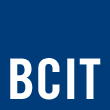Mirela Gutica
Primary tabs
Research Interests
- Educational games
- Adaptive interfaces
Biography
Mirela Gutica is Faculty member and Option Head in the School of Computing and Academic Studies, at the British Columbia Institute of Technology. Her interests in computing technology include digital logic design, computer architecture, programming languages, operating systems and human-computer interaction. She is also involved in research in learning theories, education technologies and intelligent pedagogical agents.
Over the years, Mirela Gutica taught in post-secondary education at BCIT and Douglas College courses in programming methodologies, discrete mathematics, computer architecture, operating systems, web development, system internals and research methodologies. She is the Option Head for Technical Programming since 2002. She is interested in enhancing students’ learning experiences and creating a learning community. Mirela Gutica organized and participated in several events that showcased students’ projects and connected them with specialists from industry.
Mirela Gutica completed in May 2014 a PhD in Curriculum Studies with a specialization in Technology Studies. In her PhD thesis, Mirela Gutica studied how emotion influences learning in the context of tutoring systems. She designed an educational game, Heroes of Math Island, for students in grades five to seven, and analyzed the learners’ emotional states as they interacted with it. Her findings will benefit researchers and designers in the field of advanced learning technologies.
Education:
University of British Columbia, Ph.D., 2014
Areas of study: Curriculum Studies,Technology Study Education, Adaptive Interfaces
Dissertation: Designing Educational Games and Advanced Learning Technologies: An Identification of Emotions for Modelling Pedagogical and Adaptive Emotional Agents
Recent Citations for Mirela Gutica
- Program Comprehension: Identifying Learning Trajectories for Novice Programmers
- Interaction with an edu-game: a detailed analysis of student emotions and judges' perceptions
- Program comprehension: identifying learning trajectories for novice programmers
- Motivating high school girls to study computer science
- Improving students' engagement with large-team software development projects
- Predicting academic performance: a systematic literature review
- Introductory mathematics for computer science
- Student emotions with an edu-game: a detailed analysis
- Designing an educational game (Heroes of Math Island): an exploratory study of emotion and learning
- Emotional design: an investigation into designers' perceptions of incorporating emotions in software
- Introductory mathematics for computer science
- Design, learn, and play: designing engaging educational computer games
- Emotional design: perspectives of IT designers
- Interaction with an edu-game: a detailed analysis of student emotions and judges’ perceptions
- Searching for early developmental activities leading to computational thinking skills
- Women in a male-dominated field: cost and utility
- Early developmental activities and computing proficiency
- Towards gender diversity in Computer Science postsecondary education: students’ perspectives of intrinsic and attainment values
- Taxonomizing features and methods for identifying at-risk students in computing courses
- How post-secondary students with mathematics learning disabilities use their personal electronic devices to support their academic studies

